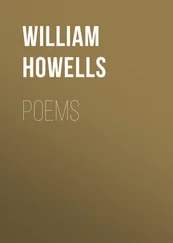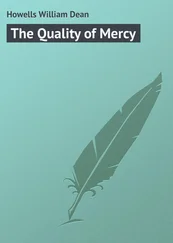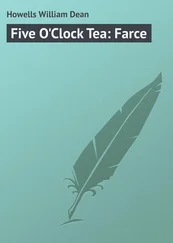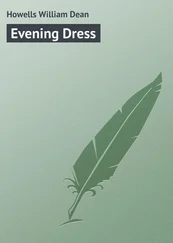William Howells - Imaginary Interviews
Здесь есть возможность читать онлайн «William Howells - Imaginary Interviews» — ознакомительный отрывок электронной книги совершенно бесплатно, а после прочтения отрывка купить полную версию. В некоторых случаях можно слушать аудио, скачать через торрент в формате fb2 и присутствует краткое содержание. Жанр: foreign_prose, на английском языке. Описание произведения, (предисловие) а так же отзывы посетителей доступны на портале библиотеки ЛибКат.
- Название:Imaginary Interviews
- Автор:
- Жанр:
- Год:неизвестен
- ISBN:нет данных
- Рейтинг книги:3 / 5. Голосов: 1
-
Избранное:Добавить в избранное
- Отзывы:
-
Ваша оценка:
- 60
- 1
- 2
- 3
- 4
- 5
Imaginary Interviews: краткое содержание, описание и аннотация
Предлагаем к чтению аннотацию, описание, краткое содержание или предисловие (зависит от того, что написал сам автор книги «Imaginary Interviews»). Если вы не нашли необходимую информацию о книге — напишите в комментариях, мы постараемся отыскать её.
Imaginary Interviews — читать онлайн ознакомительный отрывок
Ниже представлен текст книги, разбитый по страницам. Система сохранения места последней прочитанной страницы, позволяет с удобством читать онлайн бесплатно книгу «Imaginary Interviews», без необходимости каждый раз заново искать на чём Вы остановились. Поставьте закладку, и сможете в любой момент перейти на страницу, на которой закончили чтение.
Интервал:
Закладка:
We made our reflection that this passage was probably out of the rejected contribution, but we did not say anything, and our visitor went on.
"And what a lot of pleasure I did get, yesterday, for my fifty cents! There were twelve stunts on the bill, not counting the kalatechnoscope, and I got in before the first was over, so that I had the immediate advantage of seeing a gifted fellow-creature lightly swinging himself between two chairs which had their outer legs balanced on the tops of caraffes full of water, and making no more of the feat than if it were a walk in the Park or down Fifth Avenue. How I respected that man! What study had gone to the perfection of that act, and the others that he equally made nothing of! He was simply billed as 'Equilibrist,' when his name ought to have been blazoned in letters a foot high if they were in any wise to match his merit. He was followed by 'Twin Sisters,' who, as 'Refined Singers and Dancers,' appeared in sweeping confections of white silk, with deeply drooping, widely spreading white hats, and long-fringed white parasols heaped with artificial roses, and sang a little tropical romance, whose burden was
'Under the bámboo-trée,'
brought in at unexpected intervals. They also danced this romance with languid undulations, and before you could tell how or why, they had disappeared and reappeared in short green skirts, and then shorter white skirts, with steps and stops appropriate to their costumes, but always, I am bound to say, of the refinement promised. I can't tell you in what their refinement consisted, but I am sure it was there, just as I am sure of the humor of the two brothers who next appeared as 'Singing and Dancing Comedians' of the coon type. I know that they sang and they danced, and worked sable pleasantries upon one another with the help of the pianist, who often helps out the dialogue of the stage in vaudeville. They were not so good as the next people, a jealous husband and a pretty wife, who seized every occasion in the slight drama of 'The Singing Lesson,' and turned it to account in giving their favorite airs. I like to have a husband disguise himself as a German maestro, and musically make out why his wife is so zealous in studying with him, and I do not mind in the least having the sketch close without reason: it leaves something to my imagination. Two of 'America's Leading Banjoists' charmed me next, for, after all, there is nothing like the banjo. If one does not one's self rejoice in its plunking, there are others who do, and that is enough for my altruistic spirit. Besides, it is America's leading instrument, and those who excel upon it appeal to the patriotism which is never really dormant in us. Its close association with color in our civilization seemed to render it the fitting prelude of the next act, which consisted of 'Monologue and Songs' by a divine creature in lampblack, a shirt-waist worn outside his trousers, and an exaggerated development of stomach. What did he say, what did he sing? I don't know; I only know that it rested the soul and brain, that it soothed the conscience, and appeased the hungerings of ambition. Just to sit there and listen to that unalloyed nonsense was better than to 'sport with Amaryllis in the shade, or with the tangles of Neæra's hair,' or to be the object of a votive dinner, or to be forgiven one's sins; there is no such complete purgation of care as one gets from the real Afro-American when he is unreal, and lures one completely away from life, while professing to give his impressions of it. You, with your brute preferences for literality, will not understand this, and I suppose you would say I ought to have got a purer and higher joy out of the little passage of drama, which followed, and I don't know but I did. It was nothing but the notion of a hapless, half-grown girl, who has run away from the poorhouse for a half-holiday, and brings up in the dooryard of an old farmer of the codger type, who knew her father and mother. She at once sings, one doesn't know why, 'Oh, dear, what can the matter be,' and she takes out of her poor little carpet-bag a rag-doll, and puts it to sleep with 'By low, baby,' and the old codger puts the other dolls to sleep, nodding his head, and kicking his foot out in time, and he ends by offering that poor thing a home with him. If he had not done it, I do not know how I could have borne it, for my heart was in my throat with pity, and the tears were in my eyes. Good heavens! What simple instruments we men are! The falsest note in all Hamlet is in those words of his to Guildenstern: 'You would play upon me; you would seem to know my stops; you would pluck out the heart of my mystery; you would sound me from my lowest note to the top of my compass… 'S blood, do you think I am easier to be played on than a pipe?' Guildenstern ought to have said: 'Much, my lord! Here is an actor who has been summering in the country, and has caught a glimpse of pathetic fact commoner than the dust in the road, and has built it up in a bit of drama as artless as a child would fancy, and yet it swells your heart and makes you cry. Your mystery? You have no mystery to an honest man. It is only fakes and frauds who do not understand the soul. The simplest willow whistle is an instrument more complex than man.' That is what I should have said in Guildenstern's place if I had had Hamlet with me there at the vaudeville show.
"In the pretty language of the playbill," the contributor went on, "this piece was called 'A Pastoral Playlet,' and I should have been willing to see 'Mandy Hawkins' over again, instead of the 'Seals and Sea Lions,' next placarded at the sides of the curtain immediately lifted on them. Perhaps I have seen too much of seals, but I find the range of their accomplishments limited, and their impatience for fish and lump sugar too frankly greedy before and after each act. Their banjo-playing is of a most casual and irrelevant sort; they ring bells, to be sure; in extreme cases they fire small cannon; and their feat of balancing large and little balls on their noses is beyond praise. But it may be that the difficulties overcome are too obvious in their instances; I find myself holding my breath, and helping them along too strenuously for my comfort. I am always glad when the curtain goes down on them; their mere flumping about the stage makes me unhappy; but they are not so bad, after all, as trained dogs. They were followed by three 'Artistic European Acrobats,' who compensated and consoled me for the seals, by the exquisite ease with which they wrought the impossibilities of their art, in the familiar sack-coats and top-coats of every day. I really prefer tights and spangles, but I will not refuse impossibilities simply because they are performed, as our diplomats are instructed to appear at European courts, in the ordinary dress of a gentleman; it may even add a poignancy to the pleasure I own so reluctantly.
"There came another pair of 'Singers and Dancers,' and then a 'Trick Cyclist,' but really I cannot stand trick cycling, now that plain cycling, glory be! has so nearly gone out. As soon as the cyclist began to make his wheel rear up on its hind leg and carry him round the stage in that posture, I went away. But I had had enough without counting him, though I left the kalatechnoscope, with its shivering and shimmering unseen. I had had my fill of pleasure, rich and pure, such as I could have got at no legitimate theatre in town, and I came away opulently content."
We reflected awhile before we remarked: "Then I don't see what you have to complain of or to write of. Where does the decline of the vaudeville come in?"
"Oh," the rejected contributor said, with a laugh, "I forgot that. It's still so good, when compared with the mechanical drama of the legitimate theatre, that I don't know whether I can make out a case against it now. But I think I can, both in quality and quantity. I think the change began insidiously to steal upon the variety show with the increasing predominance of short plays. Since they were short, I should not have minded them so much, but they were always so bad! Still, I could go out, when they came on, and return for the tramp magician, or the comic musician, who played upon joints of stovepipe and the legs of reception-chairs and the like, and scratched matches on his two days' beard, and smoked a plaintive air on a cigarette. But when the 'playlets' began following one another in unbroken succession, I did not know what to do. Almost before I was aware of their purpose three of the leading vaudeville houses threw off the mask, and gave plays that took up the whole afternoon; and though they professed to intersperse the acts with what they called 'big vaudeville,' I could not be deceived, and I simply stopped going. When I want to see a four-act play, I will go to the legitimate theatre, and see something that I can smell, too. The influence of the vaudeville has, on the whole, been so elevating and refining that its audiences cannot stand either the impurity or the imbecility of the fashionable drama. But now the vaudeville itself is beginning to decline in quality as well as quantity."
Читать дальшеИнтервал:
Закладка:
Похожие книги на «Imaginary Interviews»
Представляем Вашему вниманию похожие книги на «Imaginary Interviews» списком для выбора. Мы отобрали схожую по названию и смыслу литературу в надежде предоставить читателям больше вариантов отыскать новые, интересные, ещё непрочитанные произведения.
Обсуждение, отзывы о книге «Imaginary Interviews» и просто собственные мнения читателей. Оставьте ваши комментарии, напишите, что Вы думаете о произведении, его смысле или главных героях. Укажите что конкретно понравилось, а что нет, и почему Вы так считаете.












